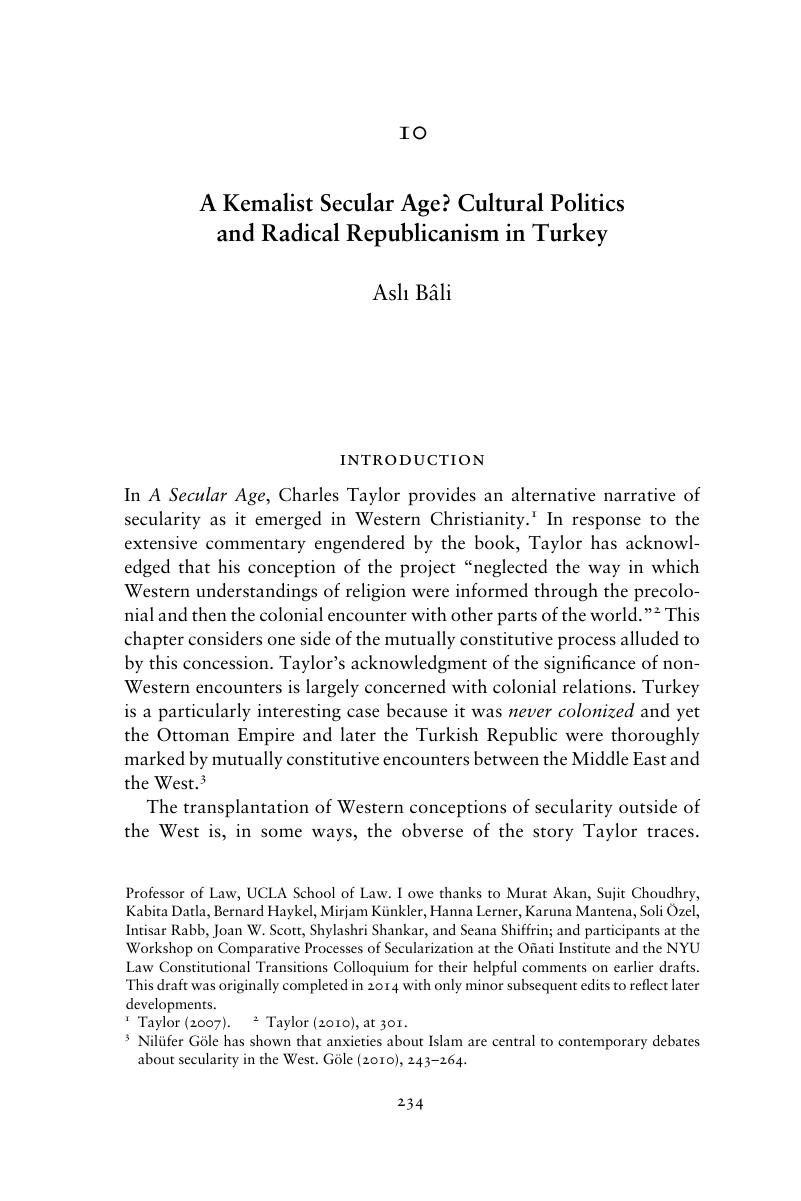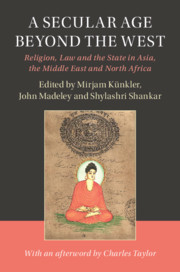Book contents
- A Secular Age beyond the West
- Cambridge Studies in Social Theory, Religion and Politics
- A Secular Age beyond the West: Religion, Law and the State in Asia, the Middle East and North Africa
- Copyright page
- Dedication
- Contents
- Tables and Figures
- Contributors
- Preface
- 1 Introduction
- 2 Secularity I: Varieties and Dilemmas
- 3 The Origins of Secular Public Space: Religion, Education, and Politics in Modern China
- 4 The Formation of Secularism in Japan
- 5 Law, Legitimacy, and Equality: The Bureaucratization of Religion and Conditions of Belief in Indonesia
- 6 Secularity and Hinduism’s Imaginaries in India
- 7 Secularity without Secularism in Pakistan: The Politics of Islam from Sir Syed to Zia
- 8 Charles Taylor’s A Secular Age and Secularization from Below in Iran
- 9 The Politics of Jewish Secularization in Israel
- 10 A Kemalist Secular Age? Cultural Politics and Radical Republicanism in Turkey
- 11 Enigmatic Variations: Russia and the Three Secularities
- 12 Piety, Politics, and Identity: Configurations of Secularity in Egypt
- 13 The Commander of the Faithful and Moroccan Secularity
- 14 Conclusions: The Continued Prevalence of the “Marker State”
- 15 Afterword and Corrections
- Appendix A Quantitative Take on the Incidence of Taylor’s Three Secularities in the Eleven Country Studies
- Index
- References
10 - A Kemalist Secular Age? Cultural Politics and Radical Republicanism in Turkey
Published online by Cambridge University Press: 15 June 2018
- A Secular Age beyond the West
- Cambridge Studies in Social Theory, Religion and Politics
- A Secular Age beyond the West: Religion, Law and the State in Asia, the Middle East and North Africa
- Copyright page
- Dedication
- Contents
- Tables and Figures
- Contributors
- Preface
- 1 Introduction
- 2 Secularity I: Varieties and Dilemmas
- 3 The Origins of Secular Public Space: Religion, Education, and Politics in Modern China
- 4 The Formation of Secularism in Japan
- 5 Law, Legitimacy, and Equality: The Bureaucratization of Religion and Conditions of Belief in Indonesia
- 6 Secularity and Hinduism’s Imaginaries in India
- 7 Secularity without Secularism in Pakistan: The Politics of Islam from Sir Syed to Zia
- 8 Charles Taylor’s A Secular Age and Secularization from Below in Iran
- 9 The Politics of Jewish Secularization in Israel
- 10 A Kemalist Secular Age? Cultural Politics and Radical Republicanism in Turkey
- 11 Enigmatic Variations: Russia and the Three Secularities
- 12 Piety, Politics, and Identity: Configurations of Secularity in Egypt
- 13 The Commander of the Faithful and Moroccan Secularity
- 14 Conclusions: The Continued Prevalence of the “Marker State”
- 15 Afterword and Corrections
- Appendix A Quantitative Take on the Incidence of Taylor’s Three Secularities in the Eleven Country Studies
- Index
- References
Summary

- Type
- Chapter
- Information
- A Secular Age beyond the WestReligion, Law and the State in Asia, the Middle East and North Africa, pp. 234 - 264Publisher: Cambridge University PressPrint publication year: 2018
References
- 1
- Cited by



